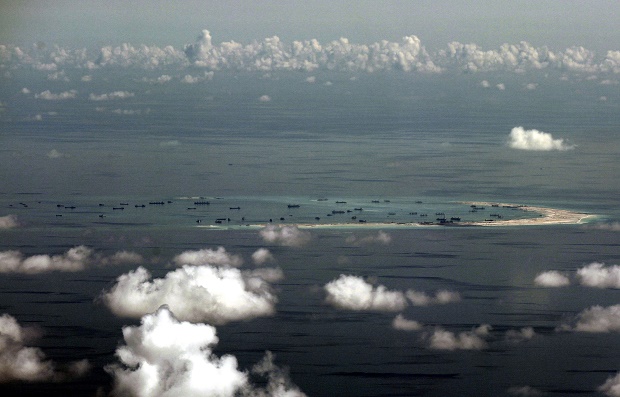Seek positive result for all in South China Sea row, says Singapore exec
Countries with conflicting claims in the South China Sea should strive for a positive outcome for all rather than a zero-sum result, Singapore Deputy Prime Minister Teo Chee Hean said.
If they seek the latter outcome – where a gain for one side is a loss for another – these disputes that have made recent headlines will be difficult to solve, he added yesterday on October 20. They may lead to a negative outcome should conflict erupt or continuing tensions prevail.
“No one would be able to benefit from access to the potentially vast resources,” Teo said at a conference organized by the S. Rajaratnam School of International Studies (RSIS) and United States think-tank The Brookings Institution.
“While sovereignty is non-divisible, resource sharing is infinitely divisible. Joint development of the rich resources would allow claimants to share the wealth of the sea.”
This is not new, he noted. Agreements have been made for countries to jointly develop or explore natural resources in areas subject to overlapping claims. One example is in the Gulf of Thailand, which saw claims involving Malaysia and Thailand, Malaysia and Vietnam, as well as Cambodia and Thailand.
Article continues after this advertisementFour Asean countries – Brunei, Malaysia, the Philippines and Vietnam – have overlapping territorial claims in the South China Sea with Beijing, whose activities in recent months have raised temperatures.
Article continues after this advertisementMonday’s one-day conference was titled “Southeast Asia and the United States: A Stable Foundation in an Uncertain Environment?”.
In his speech, Teo, who is also Coordinating Minister for National Security, spelt out three pillars of the regional architecture that were key to the Asia-Pacific’s continued stability, peace and growth – trade and economic cooperation, defense and security links, and people-to-people ties.
Countries have become more interdependent through trade, and the number of regional trade agreements in the world has grown from some 70 in 1990 to more than 270 today.
The successful conclusion of the Trans-Pacific Partnership (TPP) covering 40 per cent of the world’s gross domestic product looks set to be a game changer, Teo said.
It is critical that the US Congress ratify the TPP to send a clear signal of America’s continued presence and commitment to the region, he added, noting that China, too, has expressed hope that the TPP will “contribute to the development of trade and investment in the Asia-Pacific”.
He said Singapore looks forward to the day China is ready to join the TPP, even as other regional pacts such as the Asean-China Free Trade Agreement and ongoing negotiations for the Regional Comprehensive Economic Partnership bring trading partners and Beijing closer.
As for defense, Teo saw room for cooperation in areas that affect not just individual countries but also the world, such as piracy, counter-terrorism, and humanitarian assistance and disaster relief.
People-to-people links also help build greater understanding and trust, he said, adding that countries could work closer together in areas such as water conservation, sustainable agriculture and fire mitigation – on top of overseas internships and exchange programs for students.
Teo said all these links and interactions have to be consistent and enduring to have long-term impact. They also have to be based on international law and mutual respect for all countries, big and small, to have legitimacy and broad support.
Crucially, the regional architecture must remain open and inclusive with Asean at its center, he added.
“The US has been an integral part of this regional architecture for the past 70 years. And we hope that the US will continue to be present in the region, as this will benefit the US, the region and the world,” he said.
RSIS executive deputy chairman Ong Keng Yong said the US has played an indispensable role in the development of the region by opening its economy to Asian countries.
Brookings president Strobe Talbott said the fortunes and progress of Southeast Asia are crucial to strengthening global governance, given Russia’s regression towards the geopolitics of the past and Europe’s current struggles.
“All eyes will be on Asean’s success in forming an ever tighter community of nations… Asean can be an example of how to foster regional integration and cooperation,” he said.
RELATED STORY
Drilon: Russia backs peaceful settlement of West Philippine Sea dispute
